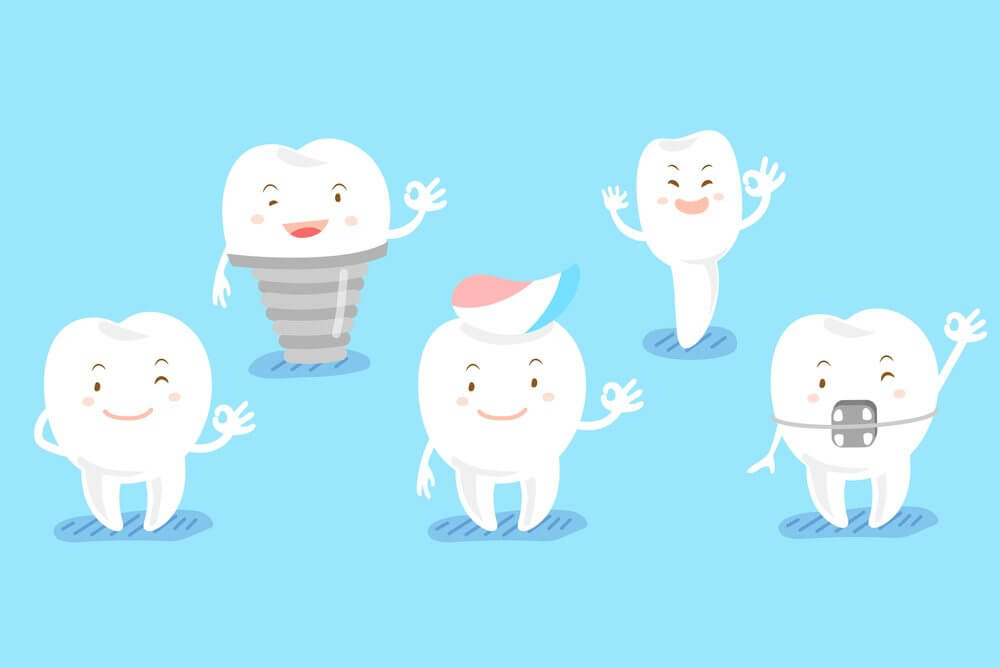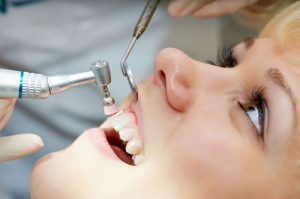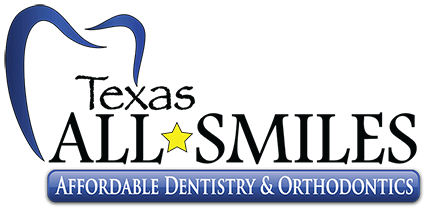
Maintain a Healthy, Stunning Smile
Here at Texas All Smiles, a healthy smile is a happy smile. That’s why we provide general dentistry for routine dental exams, teeth cleanings, and treatment of oral health complications for the entire family.
Discover how Dr. Stroumpos and our outstanding team can help ensure a lifetime of good oral health through our preventative services. We proudly serve patients in Webster, TX, as well as surrounding areas.
Dental Hygiene
It’s crucial to practice good oral hygiene habits to maintain healthy teeth and gums. This means brushing your teeth at least twice a day and flossing regularly, according to the American Dental Association (ADA).
It’s also important to schedule bi-annual dental check-ups and professional cleanings at Texas All Smiles. This will eliminate debris from hard-to-reach places between your teeth and help prevent further oral health problems, like tooth decay and gum disease.

Dental Exams & Cleanings
During your regular check-up, we’ll complete a comprehensive exam of your teeth and gums to look for signs of cavities, gum disease, and more. One of our hygienists will also provide you with a thorough teeth cleaning to eliminate any debris, plaque, or tartar build-up.
For new patients, we’ll take a full set of digital x-rays for an in-depth view of your mouth’s structures to detect possible complications. Our x-rays are fast, easy, and require less radiation, making for a better and more efficient patient experience.
Fluoride & Decay Prevention
Fluoride is a common treatment that’s been shown to help strengthen children’s teeth and prevent decay in patients of all ages. Topical fluoride, in particular, is helpful for promoting oral health and has been publicly endorsed by the ADA.
To learn more, contact our dental offices in Webster, TX. We’ll explain the benefits of fluoride and recommend whether treatment would be beneficial for you.
Root Canal Therapy
The root canal is the deepest layer of your tooth that holds nerves and blood vessels, known as the pulp. If a cavity, cracked or broken tooth is left untreated, the pulp can quickly become infected and cause severe pain, inflammation, tooth sensitivity, and more.
Fortunately, Dr. Stroumpos can help relieve your pain and save your natural tooth with root canal therapy. We’ll create a small opening to remove the infected tissue and cap it with a natural-looking, porcelain crown. This will protect and strengthen the health, function, and appearance of your natural tooth.
Helpful Tips for At-Home Care
Brushing the Right Way
When you brush, your toothbrush should be tilted at a 45 degree angle to your gum line. As you brush, be sure to remove debris from every surface of the teeth – including the backs of the teeth, near the gum line, and on chewing surfaces. The ADA recommends that all brushes be soft-bristled so as to avoid abrasions that can lead to decay and receding gum lines.
Remember to brush your tongue, as bacteria can accumulate and cause bad breath, commonly known as halitosis. Most cases of bad breath can be remedied by efficiently brushing your teeth. However, some types of bad breath are chronic or recurring, which may warrant a visit to the dentist.
How to Floss Your Teeth
Flossing only takes an extra couple of minutes per day and can prevent tooth decay and gum disease if you follow these simple steps:
- Pull the floss taut and slide it between two teeth
- Pull against the side of one tooth, creating a “C-shape” and sliding upwards to remove plaque build-up
- Pull against the opposite tooth edge using the same technique
- Repeat this process for each tooth until all inner surfaces have been flossed
- Don’t forget to floss the backs of your molars
Frequently Asked Questions
Do I really need to visit a general dentist?
Yes! It’s important to visit your dentist for a thorough exam and cleaning even if you’re not experiencing symptoms of tooth decay or gum disease. Despite regular brushing and flossing, your teeth can still accumulate tartar that can harbor unwanted bacteria. These bacteria can lead to gum disease and tooth decay if they’re not professionally removed at your dentist’s office.
What should I expect when taking dental x-rays?
Getting traditional dental x-rays can take several minutes. A thick paper tab is placed into your mouth, which you’ll be asked to bite down on. Most patients find that dental x-rays are completely painless and don’t inflict any level of discomfort.
In some cases, dentists use intraoral x-rays, as well as extra-oral x-rays that snap images of the face, jaw and skull. Extra-oral x-rays are typically used to identify impacted teeth, such as wisdom teeth.
What happens during a fluoride treatment?
Fluoride treatments are painless and can be administered in your dentist’s office at your twice-yearly check-ups and cleanings. Your dentist will distribute fluoridated gel, foam, or varnish into a tray and place it over your teeth. The treatment only takes a few minutes and is only required between one and four times per year.
To maximize your fluoride treatments, the ADA recommends supplementing your fluoridated drinking water or fluoride treatments with a fluoridated toothpaste.
Do I actually have to floss?
Yes! The ADA recommends that everyone floss in order to prevent tooth decay and gum disease. In addition to flossing, you should be adopting proper brushing techniques and visiting your dentist at least twice per year for examinations and professional dental cleanings.
You may not experience immediate results from flossing, but over time, your habit will pay off. Flossing can prevent tooth decay, gum disease and tooth loss – all of which can be highly inconvenient and expensive to treat.
Should I change my brushing habits?
You may need to change your brushing habits if you’re experiencing signs of poor oral hygiene. Examples of common symptoms include bleeding or reddened gums, excessive plaque build-up, decaying teeth, and receding gum lines.
The benefits of proper tooth brushing techniques may not be experienced immediately, but they are noticeable long-term. Over time, brushing too hard or not brushing enough can produce oral health complications that can’t be reversed and require special treatment. By adopting proper brushing habits, you can avoid expensive dental bills in the future.
Do I need treatment for my bad breath?
If your bad breath doesn’t improve despite self-care techniques, such as dietary adjustments and thorough tooth brushing, you may need to see a dentist about pursuing professional treatment. Your dentist may then inspect your mouth for signs of decay, infections, or gum disease that could be causing your bad breath
Keep in mind that short-term remedies like gum, breath mints, and mouthwash may temporarily freshen breath, but they aren’t a solution to the underlying problem. If your chronic bad breath can’t be traced to an oral problem or daily habit, you may be referred to a physician for further evaluation.
How can I change my eating habits to improve my oral health?
The ADA recommends drinking plenty of water each day and avoiding snacks between meals whenever possible. It’s important to consume nutritious foods from each of the major food groups, including whole grains, vegetables, lean proteins, low-fat dairy, and fruits.
Don’t start a new diet without consulting with your physician first. If you’re on a special diet, be sure to speak with your dentist about the types of foods you should be eating that comply with your diet and can also optimize your oral health.
Which toothbrush should I be using?
The ADA recommends using a soft-bristled toothbrush with a head that is ergonomically proportioned to the inside of your mouth. You can effectively brush your teeth with either a manual toothbrush or an electric one. However, the rapid movements of motorized versions may be more effective at removing plaque from your teeth and gum line.
If you have questions about which toothbrush is best for you, speak with your dentist about it at your next visit. He or she may recommend an electric brush with an oscillating head or a brush that includes a timer to let you know how long to brush.
Are there any special instructions I need to follow after seeing Dr. Stroumpos?
Based on the results of your dental check-up, your general dentist may recommend that you return for treatment or follow a special at-home oral care plan. You may also be referred to a dental specialist for treatment of advanced oral health conditions.
Get Quality, Complete Care Today
Together, we can maintain healthy teeth and gums for a smile that’ll last a lifetime. From routine check-ups to root canal therapy, Dr. Stroumpos provides quality, comprehensive care for patients both young and old.
Ready to schedule your free consultation? Contact (281) 286-3838 to reach our office in Webster, TX. We look forward to helping you maintain your stunning smile.

